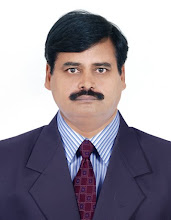Dear All
Happy to inform you all that, NIRD, Hyderabad is going to organize the National Seminar on 20-21st Jan 2011. During this event, i am going to present the paper on "WATER RESOURCES: CHALLENGES AND OPPORTUNITIES FOR SUSTAINABLE RURAL DEVELOPMENT – A COMMUNITY APPRAOCH".
The abstract of the paper is furnished below as:
ABSTRACT
Keywords: Hydrological Cycle, Geophysics, Exploration, Aquifer, Sustainability, Quality of Life, Stakeholders, Rainwater Harvesting, Watershed Management, Challenges, Opportunities, Rural Development, Employability, Livelihood Activities.
Water is the most precious natural resource which controls everything on this earth. Due to complex environment both caused by natural and man made activities, access for water has become unpleasant and thus creating challenges for the users as well as to balance the hydrological cycle. This further resulted for seasonal variations and warnings like global warming and climate change with hazards & disasters. Water, when there is a rain or no rain is creating challenges with disasters and thus making the people victims of poverty. As poverty and development are the cause and consequence of each other, water is playing significant role in creating sustainable development with matching infrastructure in the rural regions.
When challenges have become common, the need of the hour is to understand them and to transform them into opportunities. Under these circumstances, creating better access with management strategies for harvesting, storage and utilization of water has been chosen in the present study as it helps for further infrastructural development in the area of water, sanitation. health, education, irrigation and other needs of the community with better connectivity.
Several opportunities were deployed in creating access for water for drinking, domestic and other purposes. This includes: assessment of water in terms of requirement and availability and balancing both with effective strategies. Use of rainwater harvesting, watershed management, geophysical exploration tools, prevention and monitoring of pollutants helped to create the data base and to formulate further action plan. Use of geophysical tools both surface and bore whole in identification of fresh water zones and monitoring of salt water – freshwater interface along the coastal belt is significant in managing the needs of the people living in the coastal villages. The impact was significant and accepted by the users and other stakeholders.
The challenges and opportunities with water in creating healthy environment with sustainable development with community approach as models were presented in the paper covering parts of India. The access for water has created for livelihood activities both directly and indirectly. The processes of transforming challenges into opportunities are simple and can be replicated in any area with suitable modifications based on their needs, challenges and environment which finally work for building infrastructure in the rural regions.
............................................................................
Looking forward for reflections on this as we all need to work with the community for creating better access for water and thus sustainable development of the people as well as the community to nation.
with thanks
Wednesday, January 19, 2011
Subscribe to:
Post Comments (Atom)

No comments:
Post a Comment